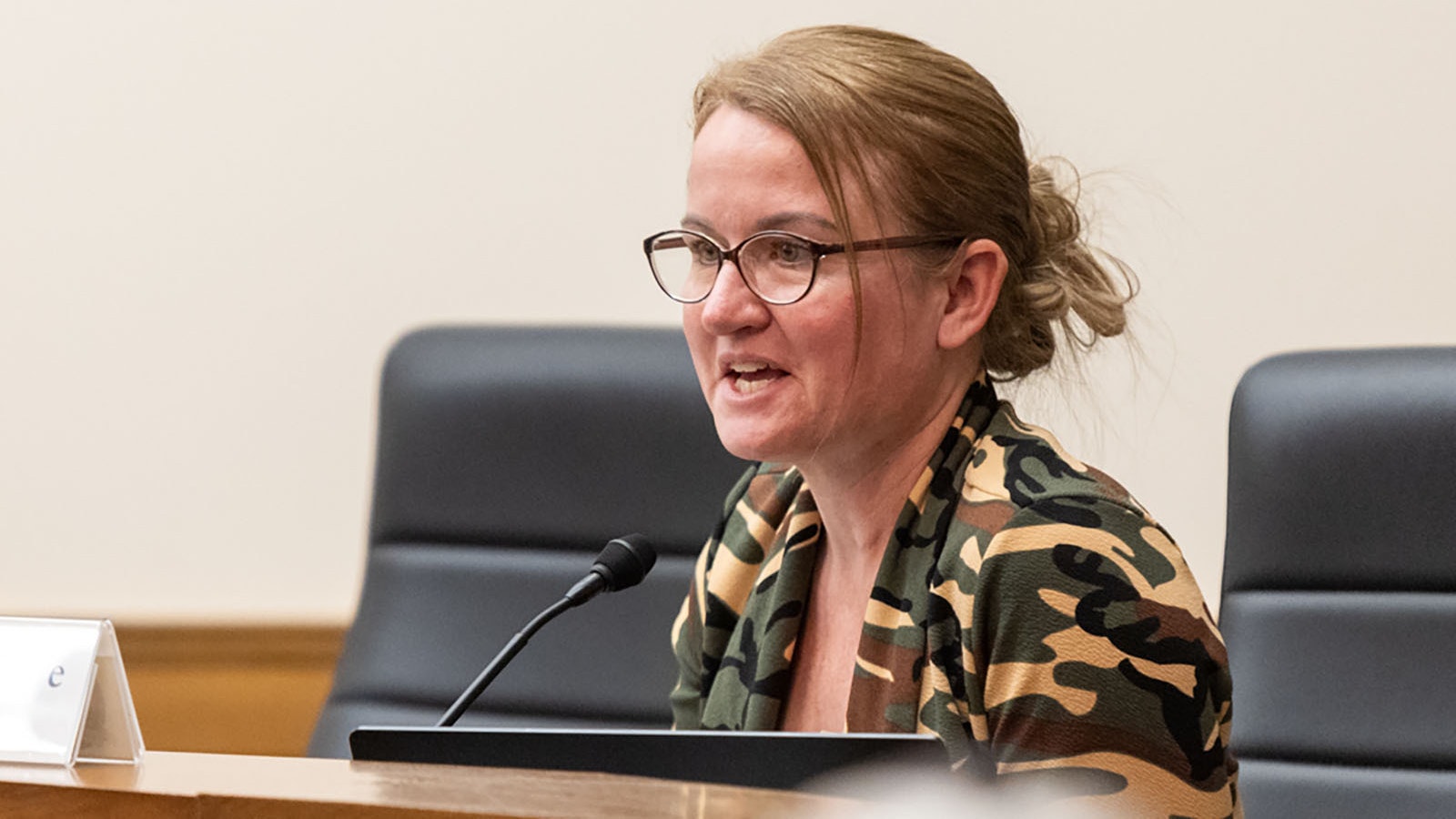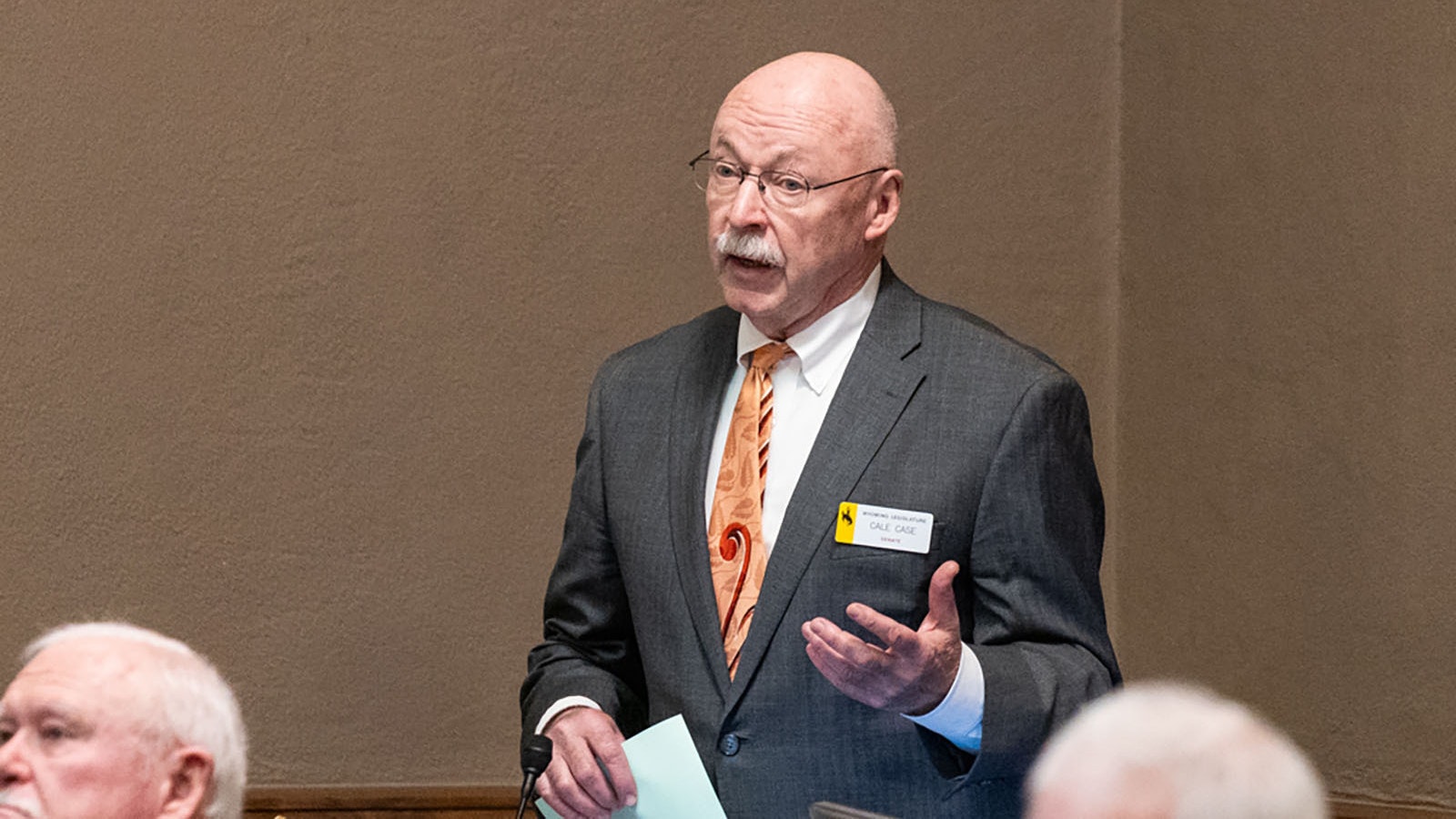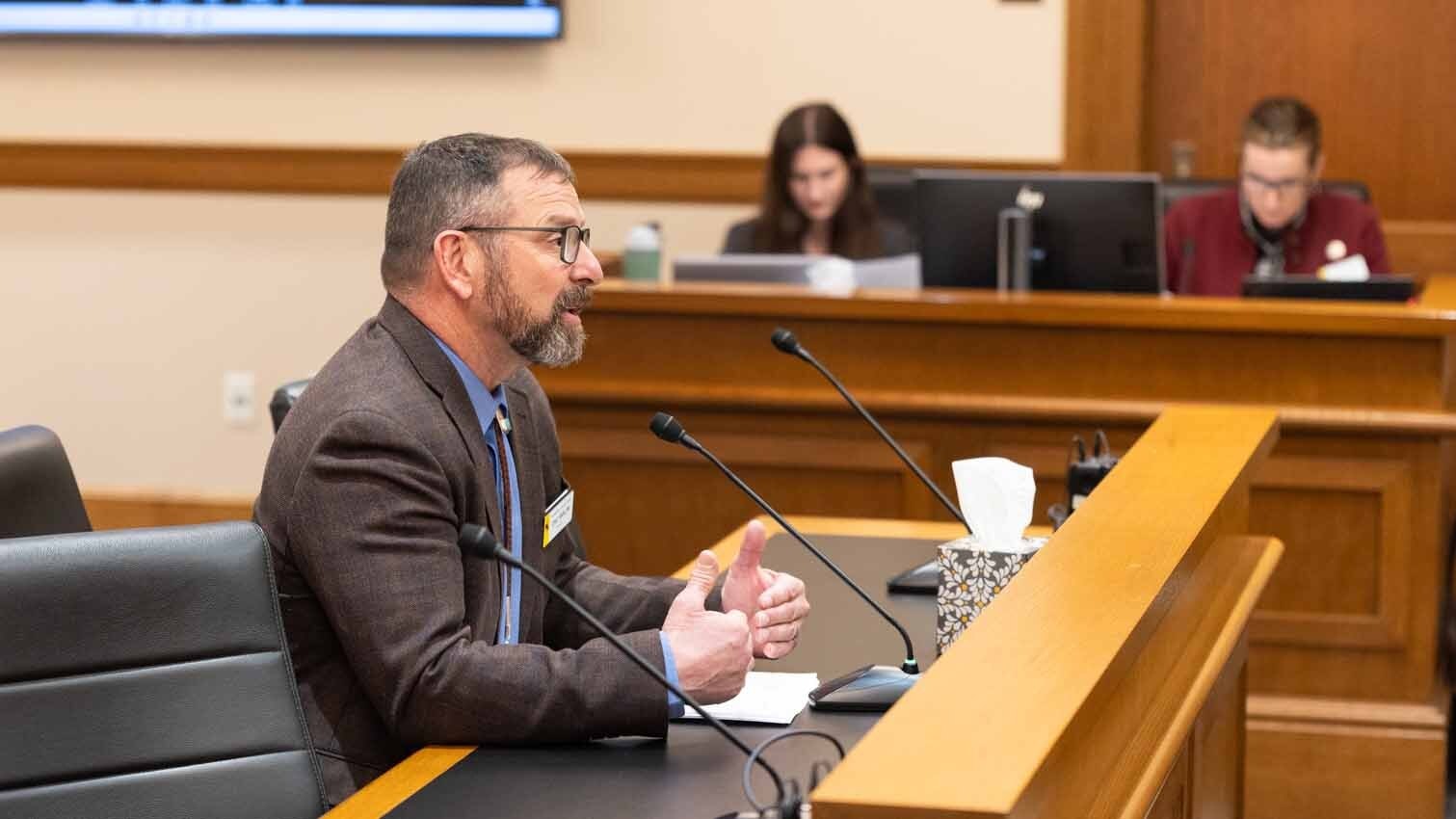Since 2020, Alpine has seen its population balloon from about 900 to an estimated 1,300, and the proposed expansion of a gravel pit right on the edge of town is only adding to the community’s growing pains.
Residents are worried that fine-particle silica dust from a proposed 240-acre expansion of the Alpine Bear Pit gravel operation could pollute the air, as well as water in the nearby Palisades Reservoir, town council member Emily Castillo told Cowboy State Daily.
“Alpine has a wind corridor that runs straight through town and straight into the Palisades,” she said.
The Alpine Childhood Development Center preschool is in that wind corridor, as is the site for a proposed new elementary school, she added.
“There are families with lot lines and fences that are directly behind the gravel pit,” Castillo said.
Town Grew Up To The Gravel Pit’s Edge
The gravel pit has been operating for 50 years. Back when it opened, it was a ways back from the edge of Alpine, which sits near the Wyoming-Idaho state line in Lincoln County.
In the years since, development has crept right up to the edge of gravel pit, resident Shaw Scaffide told Cowboy State Daily.
So the town has grown to the point where expanding the gravel pit isn’t feasible, said Scaffide, who is also running for town council.
“Alpine now isn’t the Alpine of 50 years ago,” she said.
Newcomer Susan Kolbas, agreed, telling Cowboy State Daily that “the town grew right up to the edge of the gravel pit.”
She’s trying to decide whether to settle permanently in Alpine and is worried that the gravel pit expansion could hurt the air quality and drive down property values.
Company Says Expansion Won’t Cause Pollution
There’s also concern that gravel pit expansion could disrupt the local elk herd’s migration route and disrupt recreation on the reservoir.
However, the Sunroc Corp., which took over the gravel pit in 2020, claims that even though it is requesting more land, it won’t increase production or potential pollution.
“The expansion of the extraction area will not result in increased fugitive dust emissions since there is no proposal to raise production levels,” according to a statement from Sunroc.
Sunroc, which took over operations at the gravel pit in 2020, plans to keep using standard dust-mitigation measures, such as spraying water, according to the company.
Moreover, the expansion could also be beneficial to Palisades Reservoir, as it should improve drainage there, the company claims.
Multi-Agency Confusion
Residents have launched a petition protesting the gravel pit expansion, Castillo said.
She’s tried digging into matter, but the number of agencies involved has made that confusing, she said.
The federal Bureau of Reclamation, which controls Palisades Reservoir, also apparently has primary jurisdiction over the gravel pit site, she said.
But Lincon County and Wyoming Department of Environmental Quality also have stakes in the matter, Castillo said. As does the Idaho Department of Environmental Quality, because part of the reservoir is on the Idaho side of the state line.
If there’s any dredging and filling of the reservoir involved in the proposed expansion, that would likely require a permit from the Army Corps of Engineers, Castillo said.
She also just learned on Wednesday that the Wyoming Department of Transportation (WYDOT), which controls a 40-acre strip adjacent to the Sunroc site, could be involved.
And there’s yet another piece to the bureaucratic puzzle Castillo is trying to piece together. A federal National Environmental Protection Act (NEPA) study of the proposed expansion is expected to wrap up this winter.
“Once you start digging into this, it’s not only confusing for a citizen, it’s confusing for the people with all the agencies involved,” she said.
The Wyoming and Idaho DEQs have both been helpful, Castillo said, but communication between the various agencies involved and the general public, has been lacking.
Getting representatives from all the parties together for an “information session” for residents in the Alpine town hall might be helpful, she said.
‘We’re Imploding Here’
As the controversy over the gravel pit grinds on, Alpine’s growth continues.
It’s been a scramble trying to grow local infrastructure to meet the needs of all the new residents, Scaffide said.
“We’re imploding here,” she said.
Growth really took off during the Covid-19 pandemic she said, as people from all over the country started looking for out-of-the-way places to live.
“What happened in 2020 really put Alpine on the map,” Scaffide said.
With more families with children showing up, the preschool has put in a request to expand its 3,000-square-foot facility, Castillo said.
As of Sept. 13, there were 55 students on the roster, with five more on the waiting list,” she said.
With no end of growth in sight, Castillo said she expects pushback against the gravel pit to continue, because newcomers won’t be keen on the town being covered in dust.
“We’re looking at the impacts on property values, and potential impacts to wildlife,” she said. “But my biggest concern is always for the surrounding community’s health and safety.”
Mark Heinz can be reached at mark@cowboystatedaily.com.







